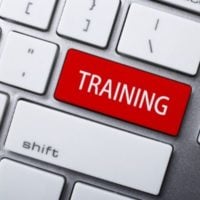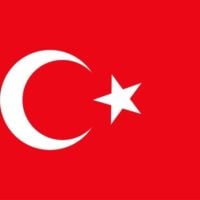Deadline: 10-Jan-23
Are you a human rights defender keen to use the UN to push for change locally? If so, apply for the 2023 edition of ISHR’s flagship training, the Human Rights Defender Advocacy Programme (HRDAP).
The International Service for Human Rights (ISHR) conducts regular training courses on the use of the main human rights mechanisms, including the Human Rights Council, the UN Special Procedures, the UN Treaty Bodies and the Universal Periodic Review (UPR). The annual Human Rights Defenders Advocacy Programme, (HRDAP) equips human rights defenders with the knowledge and skills to integrate the system into their existing work at the national level in a strategic manner.
The programme also provides an opportunity for participants to engage in lobbying and advocacy activities at the UN with the aim to effect change back home.
Objectives
- The objectives of the course fall into the following three broad categories:
- Supporting human rights defenders:
- Develop human rights defenders’ advocacy skills and expertise;
- Enhance the ability of human rights defenders to engage strategically with the Human Rights Council and other international human rights mechanisms, as well as to develop diplomatic and civil society networks;
- Improve the quality of NGO participation in the Human Rights Council, with a view to exert a greater influence on human rights foreign policy;
- Share tools and knowledge, which human rights defenders can use to ensure their voice is central in international human rights decision-making;
- Develop advocacy strategies for specific issues, and to ensure follow-up and action on the Human Rights Council’s resolutions;
- Increase human rights defenders’ understanding of the short, mid and longer-term opportunities provided by human rights mechanisms in Geneva;
- Explore and compare the benefits of engagement with the Human Rights Council, the Special Procedures, the OHCHR, the UPR and the Treaty Bodies, and examine how advocates can use them to bolster their work at the national level;
- Develop strategies and lobbying techniques to increase the potential of human rights defenders’ national and regional advocacy work.
- Influencing the substantive outcomes of international human rights mechanisms in a positive manner, including Human Rights Council resolutions and the work of UN thematic and country specific human rights experts (the Special Procedures).
- Creating a peer group of human rights defenders working on a diverse range of issues, identifying best practice in advocating for human rights change, and exchanging lessons and experiences in conducting international advocacy.
- Supporting human rights defenders:
Course Requirements
- In order to complete HRDAP23 and receive a certification, participants will be required to:
- Complete approximately 5 hours of work/week, which includes completing pre-reading resources, including ISHR Academy modules and e-learning
- Take part actively and consistently in live webinars, Q&A sessions and forum discussions held online
- Be present and actively participate during the in-person session and prepare in advance necessary requirements
- Attend and participate in individual and group coaching sessions, which will be held via videoconference and in-person
- Develop and submit a set of personal advocacy objectives by submitting short individual assignments every 2 weeks, as well as a final submission at the end of the course which will outline the defender’s “Advocacy Roadmap” (i.e theory of change).
- Prepare some advocacy tools/documents to support advocacy activities in Geneva.
Benefits
- Defenders will complete a 10-week hybrid learning programme, online and offline, which will include:
- Access to the HRDAP Platform, where they can complete e-learning courses on each key UN human rights mechanism and on advocacy and lobbying strategies, access interactive learning materials and case studies on the ISHR Academy
- Take part in live Q&A sessions with human rights experts
- Receive a continuous advocacy support and coaching in order to develop concrete advocacy objectives to make strategic use of the international human rights system
- Build networks around the world, and learn from peers from a range of regions working on a range of human rights issues
- Apply their knowledge to case-studies scenarios and enhance their advocacy toolbox according to their specific needs
- Receive support and advocacy accompaniment to conduct activities during the 53rd and 54th Human Rights Council sessions and other relevant opportunities.
Participant Profile
- This programme is directed at experienced human rights defenders in non-governmental organisations, who have existing advocacy experience at the national level and some prior knowledge of the international human rights system.
- ISHR supports, and promotes solidarity with and between, defenders working in the following areas or contexts, which they recognise as intersectional and interdependent:
- Equality, dignity and non-discrimination: Such defenders may include migrant rights defenders, minority rights defenders, and anti-racism and Black, indigenous and people of colour (BIPOC) defenders.
- Environmental justice and sustainability: Such defenders may include environmental HRDs (EHRDs), climate activists, corporate accountability activists.
- International accountability for repression of Human Rights Defenders: Such defenders may include those working in highly restrictive or repressive environments.
- Transparency and rule of law:Such defenders may include those working in deteriorating environments where there is a need to safeguard, or an opportunity to strengthen, democratic institutions and accountability mechanisms.
- Final decisions regarding participants will be based upon the following criteria:
- Match between applicants’ area of work/expertise and ISHR’s strategic priorities and/or the opportunities provided by the 53rd and 54th Sessions of the Human Rights Council, as well as other UN mechanisms;
- Applicants’ knowledge of human rights and their experience and willingness to engage with the UN human rights system and integrate it effectively into domestic level advocacy in a sustainable manner;
- The potential for a strategic and sustainable partnership between ISHR and the applicants’ organisation;
- Whether applicants or their organisations have been recommended by a strategic partner;
- Applicants’ experience of carrying out advocacy at the national and/or regional level;
- Applicants’ advocacy responsibilities and role within their organisation;
- Applicants’ willingness to contribute to peer education in a diverse group of participants;
- Applicants’ demonstrated commitment to the principles of human rights, including the principles of universality and non-discrimination;
- Applicant from country/working on topic that is under-represented at the Human Rights Council;
- Communication, language and organisational skills
- The course will be carried out in English. ISHR cannot provide translation.
- In identifying and selecting participants, ISHR will work closely with leading human rights organisations in each of the specific respective focus areas and across the world.
For more information, visit ISHR.









































